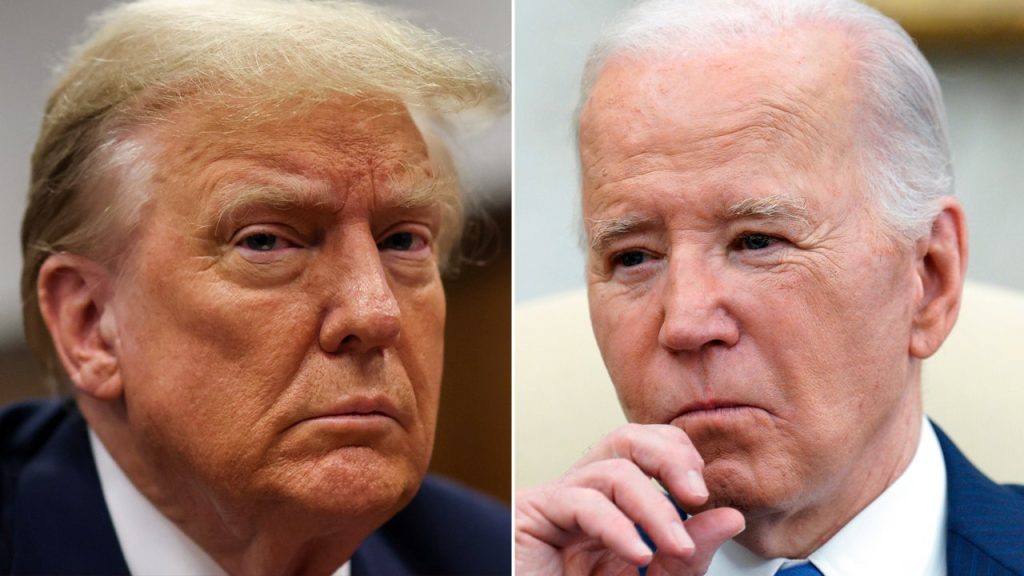In the lead-up to the Biden administration’s conclusion, President-elect Donald Trump’s rhetoric sharply contrasts with that of President Joe Biden, especially regarding foreign policy and responses to aggression, particularly in the Middle East. Trump has made bold declarations even before his official inauguration, warning Hamas of dire consequences if the hostages they have taken are not released promptly. He expressed on Truth Social that if these hostages are not returned by the time he takes office, there would be “ALL HELL TO PAY in the Middle East.” This aggressive approach marks a significant juxtaposition to Biden’s more restrained and cautionary demeanor, wherein he often utilized the word “don’t” as a primary deterrent to foreign hostilities.
The conflict in the Middle East reignited on October 7, 2023, when Hamas launched an unprecedented assault on Israel, resulting in the kidnapping of over 200 individuals, of which 101 hostages, including seven Americans, have continued to be held more than a year into the ongoing war. The Biden administration, alongside the Israeli government, has been actively exploring avenues for the release of hostages, although these efforts have been met with limited success. In contrast, Trump’s statements emphasize a zero-tolerance approach for those responsible, as he threatens significant retaliation against Hamas, highlighting a belief that the previous strategy employed by the Biden administration failed to deter adversaries effectively.
Biden had publicly articulated a “don’t” doctrine, cautioning adversary states against aggression toward Israel. Despite these warnings, attacks have persisted, particularly from Iranian proxies, which critics highlight as a failure of deterrent strategy. In multiple instances throughout the year, Biden reiterated his “don’t” message directed at Iran, asserting that their plans to attack Israel would not materialize as the U.S. remains committed to Israel’s defense. However, this approach has drawn ire from conservative commentators and former officials, who argue that merely stating “don’t” lacks substantive impact and fails to impose necessary consequences on countries like Iran, rendering the U.S. response ineffective.
Former Secretary of State Mike Pompeo critiqued the Biden administration’s handling of threats, suggesting that the lack of actionable responses following the “don’t” warnings has exacerbated risks posed by Iran. This sentiment has been echoed by other political figures, including Senator Lindsey Graham, who noted that every time Biden asserts “don’t,” adversaries choose to act anyway. Republican representatives and commentators have frequently lambasted the Biden administration’s policy as weak, urging a stronger stance against hostile entities in the Middle East, particularly as the conflict escalates and the specter of broader war looms.
Trump’s campaign promises have turned towards resolving the crises in both Ukraine and Israel, asserting that the conflicts would not have escalated under his leadership. He aims to portray himself as capable of swiftly negotiating peace, and key figures within Israel have expressed their approval for his firm position against terrorism and his clear expectations regarding hostage release. Trump continues to leverage this narrative to galvanize support, suggesting that his forthcoming administration will prioritize peace and security through stronger postures, in stark contrast to Biden’s perceived indecisiveness.
As Trump’s inauguration approaches, the rhetoric associated with his administration appears to stem from a strategy focused on punishing aggressors and making clear that repercussions will follow egregious actions. As Trump asserts control over his messaging, his supporters in Israel express optimism that his stance may lead to a more decisive response against threats posed by groups like Hamas. In anticipation of Trump’s term, claims about a shift in regional dynamics have emerged, suggesting that adversaries are already feeling apprehensive about the incoming administration’s approach to international relations and security.


